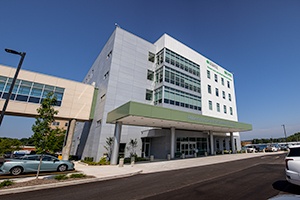Gastrointestinal (GI) motility is a subspecialty within gastroenterology that focuses on the functional movement and regulation of the muscles and nerves involved in the digestive process. This field is concerned with the normal and abnormal movements of the gastrointestinal tract, which are essential for proper digestion and absorption of nutrients. The motility of the GI tract encompasses processes such as esophageal peristalsis, gastric emptying, intestinal transit and coordinated contractions of the smooth muscle that facilitate digestion, nutrient absorption and elimination of waste.
GI motility disorders arise when these processes are disrupted, leading to symptoms such as chronic abdominal pain, bloating, acid reflux, nausea, vomiting, constipation, diarrhea and dysphagia (difficulty swallowing). Conditions like gastroparesis, esophageal dysmotility, achalasia, irritable bowel syndrome (IBS), chronic constipation and small bowel and colonic dysmotility are all examples of GI motility disorders. These conditions can significantly impact a patient’s quality of life and are often complex to diagnose and treat due to the intricate nature of gastrointestinal function.
Our specialized GI motility services, led by the region’s only fellowship-trained gastrointestinal motility specialist, Sandeep Verma, MD, provide advanced diagnosis and treatment for complex conditions close to home. Patients benefit from access to testing and care that typically requires travel to out-of-state centers, integration with the full spectrum of gastroenterology services and opportunities to take advantage of the latest research and innovations in digestive health. Dr. Verma is a physician-scientist with a research background in human gut microbiome, and is working to further new treatments in the complex field of GI motility through evidence-based practice.
Our GI motility program evaluates and treats a wide range of motility disorders, including:
We use state-of-the-art testing to identify and measure motility problems, including:
Our team works closely with each patient to create a personalized treatment plan, which may include dietary guidance, medication, minimally invasive procedures or referrals for advanced therapies. We coordinate with other specialists — such as dietitians, surgeons and pelvic floor therapists — to provide comprehensive, seamless care.
Clinical Interests:
Locations:

A provider-based department of Cabell Huntington HospitalRobert and Lena Shell Medical Pavilion1340 Hal Greer Blvd.
Building 2, Second Floor (Suite #2000)
Huntington, WV 25701
Phone: 304.691.1000
Schedule an appointment or learn more about our gastrointestinal motility services.
Marshall Health - Gastroenterology & Hepatology
304.691.1000